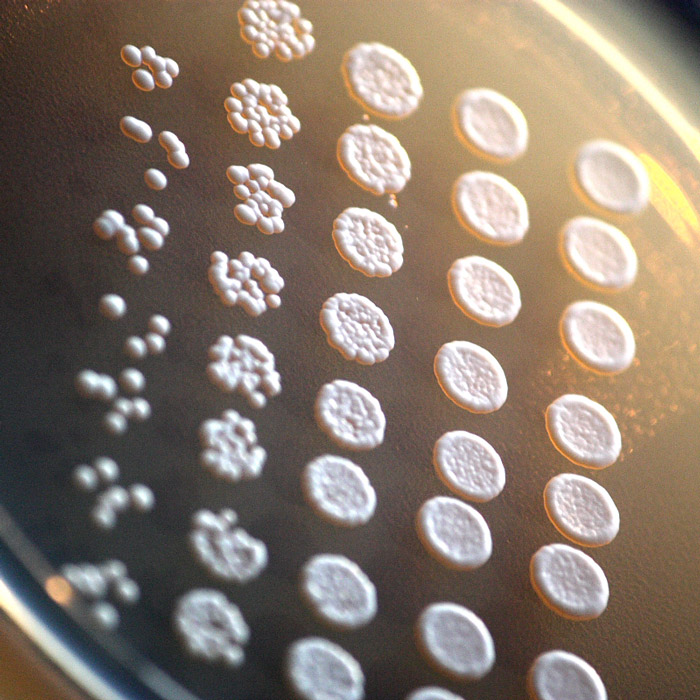A few days ago, the news caused a stir that the yeast "Starmerella bacillaris" can significantly reduce the alcohol yield during the fermentation of wine. This was discovered by the French researcher Antoine Gobert. This non-Saccharomyces yeast has been raising hopes for some time: For example, it is effective on the grape surface against grey mould infections caused by Botrytis cinerea. This is remarkable, because non-Saccharomyces yeasts were undesirable in wine production in the past because they were mostly isolated from wines with a sluggish fermentation process or with negative sensory characteristics.

Researchers at the University of Padua published the first results of studies on the ability of Starmerella bacillaris to survive or even grow on the surface of grapes in spring 2021. Under laboratory conditions, the yeast survived for at least six days in high concentrations.
Even then, it was shown that the yeast can trigger alcoholic fermentation after harvest and positively influence the fermentation process by producing high concentrations of glycerol with low amounts of volatile acids. According to the scientists, there are currently many indications that this yeast is also a good candidate for use as a biological control agent shortly before harvest. This is because treatment with synthetic fungicides must be stopped in time to meet the pre-harvest interval for limiting toxic residues.
In their analysis, the researchers wrote: "These preliminary results form the basis for further investigations involving open field trials to evaluate Starmerella bacillaris as a biological control agent in the vineyard and its effect on wine during industrial winemaking. Under these conditions, it would also be necessary to evaluate the sensory impact of Starmerella bacillaris on wine quality."

This is exactly what French researcher Antoine Gobert did. His experiments showed a drop in alcohol content of 1 to 1.5 per cent. After further experiments in three-litre bioreactors with controlled circulation, oxygen supply and nutrition, he even managed to achieve a reduction of 2.5 percent.
According to his own statements, he paid particular attention to ensuring that the fermentations proceeded flawlessly and produced wines of impeccable taste. Thus, wines fermented with the Starmerella bacillaris yeast were sensory analysed by oenologists of the University of Dijon and other experts. They even noted an increase in complexity and fruity notes.
The yeast manufacturer Sofralab, where Gobert is employed, will now test the new yeast on a large scale. The company wants to offer it to several partner wineries and is already fine-tuning the production and drying method.
The yeast is expected to go on sale under the brand name "Starbella" before the 2023 harvest.
© Photos: Wikimedia: JJ Harrison (header), Rainis Venta, John Yesberg